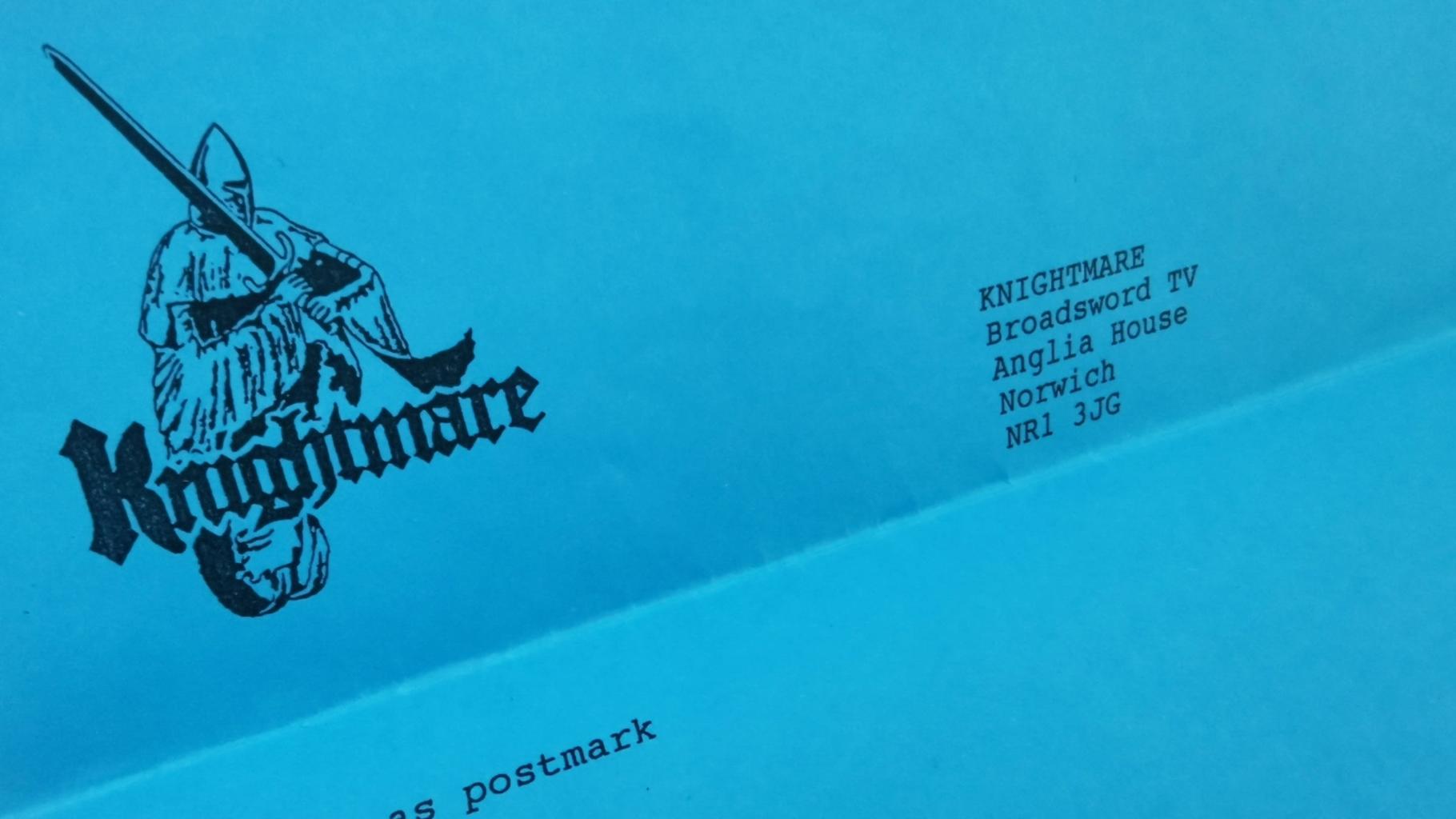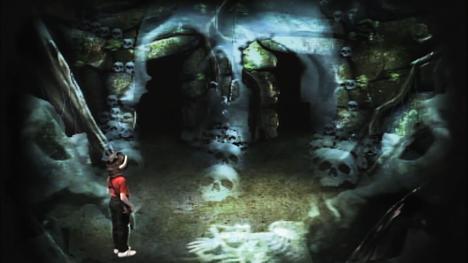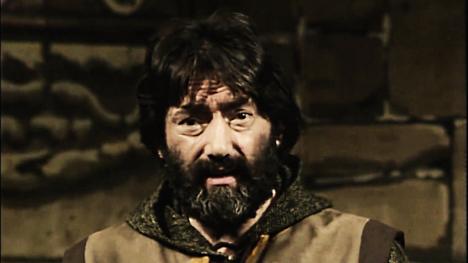30 years ago this summer, letters on blue paper were landing on hundreds of doormats around the country, confirming the end of Knightmare.
In the summer of 1995, hundreds of hopeful Knightmare contestants had their dreams of appearing on the show quashed as Broadsword announced that the show had ended.
Letters in self-addressed envelopes began arriving from May and continued throughout the summer.
Applicants were informed of two new shows in the pipeline and that all teams would be automatically opted in for selection.
For those unaware of the doubt surrounding Knightmare's future (announced in The Quest fanzine), it was a crushing revelation.
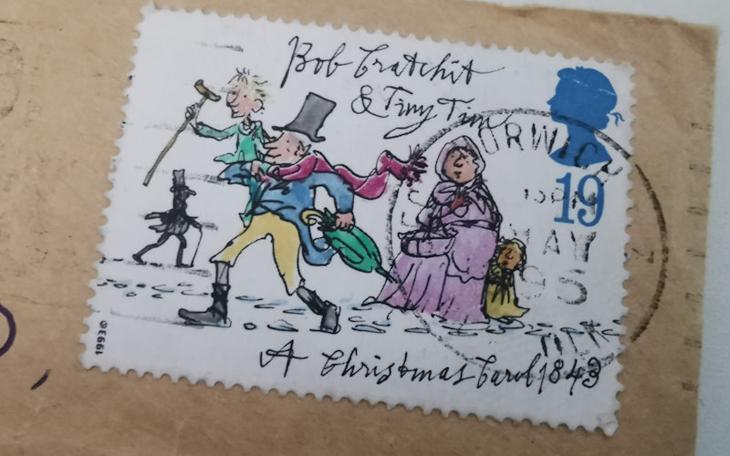
Why Knightmare ended
Knightmare creator Tim Child has explained at length the reasons behind the show's demise. He attributes the decision to a set of circumstances.
It began in 1992 when Knightmare narrowly missed out on the Royal Television Society's award for the best children's show. Child believes this would have secured a longer-term future for the show.
Meanwhile at ITV, a new controller of children's programming, Dawn Airey, had arrived with a data-driven approach. Research had shown that older children were migrating towards consoles and away from television.
While Airey was a fan of Knightmare, she sought assurances about how Broadsword's output would reflect these trends.
After protracted negotiations, Broadsword was asked to trial something for younger children. Thus, Knightmare's final season in 1994 was curtailed to make room for a new gameshow, Virtually Impossible.
Airey's sudden departure in 1994 put a further thorn in the works. ITV appointed Vanessa Chapman as Airey's successor rather than one of the anticipated favourites, Janie Grace.
Grace was head of children's programming at MAI, which had purchased Anglia TV earlier that year. She continued to fight Knightmare's corner in subsequent discussions but was unable to alter the path that had been set in motion.
Child eventually decided against a final ninth series of Knightmare, explaining that the VR technology needed to take the show to the next level was still too primitive.
The letter (full text)
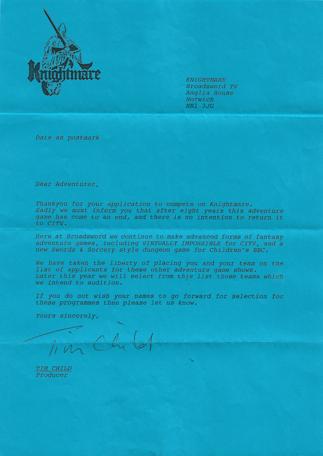
Dear Adventurer,
Thankyou for your application to compete on Knightmare. Sadly we must inform you that after eight years this adventure game has come to an end, and there is no intention to return it to CITV.
Here at Broadsword we continue to make advanced forms of fantasy adventure games, including VIRTUALLY IMPOSSIBLE for CITV, and a new Swords & Sorcery style dungeon game for Children's BBC.
We have taken the liberty of placing you and your team on the list of applicants for these other adventure game shows. Later this year we will select from this list those teams which we intend to audition.
If you do not wish your names to go forward for selection for these programmes then please let us know.
Yours sincerely, TIM CHILD [Producer]
